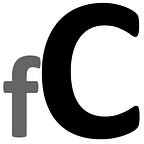Hackathons as the learning model
Recently, we held a Data Ideation hackathon. This was a 2 hour event consisting of 2 sprints, linked to our current development project. Our Data Stories app will deliver a graphical data story each day to the user, relating to a set of climate related data. With the app we hope to raise awareness of climate change, and a desire to share our images on social media.
We asked our hackathon teams to select a data set, think about what questions they would want to ask of the data and to identify the data set and question, then they were asked to suggest a way to visualise the data and a caption that would encapsulate what was being shown.
Our hackathon event followed the Scrum Educational Experience model, developed by Aga Gajownik, which we have been tweaking to fit our needs. The response to this type of event is always very positive. Everyone is in a team, has a specific set of items to deliver, tight deadlines and a defined role within the team for each sprint (unit of work). Deadlines are alway quite short and help the team to stay focused. After each sprint teams can share their products with other teams, reflect on the product (review) and the way the team worked together to produce it (retrospective).
We use the hackathon model in all our learning programmes. It has high engagement, is highly motivating, helps learners to get to know each other and can be contextualised to allow learners to see the end goal for the learning programme.
We were really pleased to be able to involve the 6 young people we currently have with us as an experience of working in a software development team. They are busy preparing themselves to produce stunning data images using code (some Python, some Javascript). Their learning pace has been fantastic and we hope that the first young developer will take her first issue this week (which will, of course, include some new learning). The hackathon put what they were learning about in a good context. They will do a similar exercise for each issue, take a data set, agree an interesting question, then use code to wrangle and visualise the data so that it provide a graphical response to the question.
We are really looking forward to seeing where this will go.
